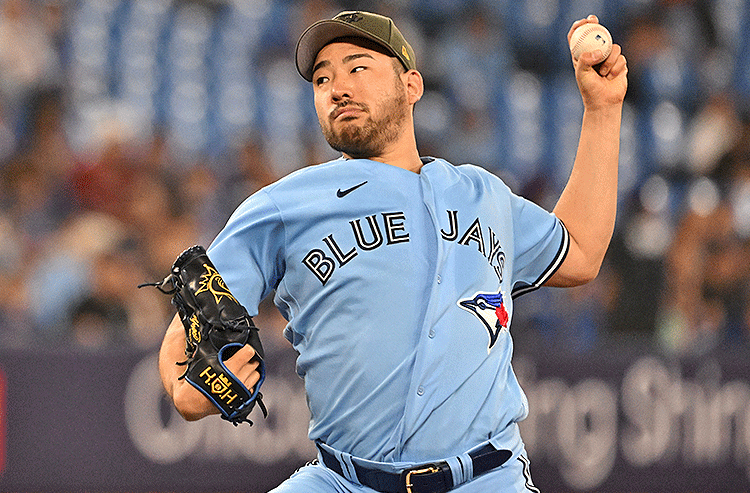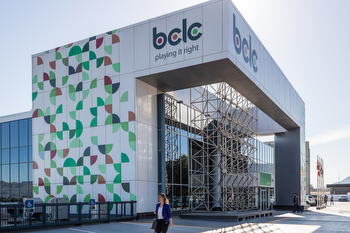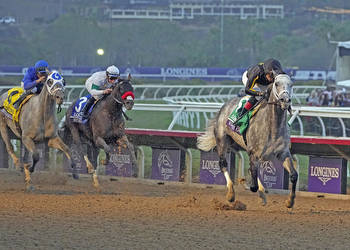Should Sask. copy Ontario's model for online sports gambling? A gaming platform makes its case

One of the most visible players in Canada's online sports gambling market is lobbying the Saskatchewan government to adopt something similar to Ontario's model.
PointsBet Canada — which has an official sports betting partnership with the Toronto Raptors, Toronto Maple Leafs and Curling Canada, as well as an exclusive partnership with the NHL Alumni Association — was one of the first operators to sign up when Ontario launched its open, competitive online gaming market last April.
Prior to single-event sports betting becoming legalized in Canada in 2021, the Canadian Gaming Association estimatedCanadians spent $14 billion annually on unregulated black market and offshore sports wagering websites.
"The one move that Ontario did, which I think has been very effective at handling that, is it provided a pathway to legitimacy or to regulation for the grey-market operators," said Scott Vanderwel, the CEO of PointsBet Canada.
The number of regulated operators in Ontario has been steadily increasing since the province opened its market. Entering this week, were permitted to operate in that province — not including the Ontario Lottery and Gaming Corporation's own online platform.
Some of those operators used to be considered part of the "grey" — or unregulated — market in Ontario and are still part of the grey market in other provinces, such as Saskatchewan.
Ontario's trade-off
In exchange for adhering to government standards of game integrity, player protections, and social responsibility — as well as agreeing to pay tax on their earnings to the Ontario government — the operators are now considered regulated entities that have the privilege of advertising their products.
Vanderwel said Ontario has a very effective approach.
"The main thing we're asking for is the Saskatchewan government, alongside other governments across the country, take a look at the Ontario framework and consider whether that framework, with local modifications, would be appropriate for their province," he said.
The Ontario government has also beenurging consumers to only play on online gambling websites run by these regulated operators by searching for the iGaming Ontario logo on the sites in order to benefit from consumer protection measures.
Ontario is the only province in Canada to open up its online gaming market this way.
Saskatchewan, like most of the other provinces, has one operator whose revenues flow directly into provincial government coffers. The Saskatchewan Indian Gaming Authority launched PlayNow.com in November 2022 in partnership with the Saskatchewan government.
First move, not final: CEO
The provincial government and SIGA have the exclusive rights to the online gaming and single-event sports betting market in the province for five years.
When asked about this arrangement, Vanderwel said he thought it was the logical first move.
"I just think it shouldn't be the final move," he said.
He said the reality is many residents of Saskatchewan are playing on grey market websites that are outside of a regulatory framework and without oversight.
"As a result, you have the piece of the market that's visible and that exists inside of the government solution — and then the piece of the market that is less visible and that is not being equivalently-managed or regulated," he said.
Vanderwel said provinces like Saskatchewan should open up their online gaming markets to as much competition as is feasible.
"Our perspective is that the best solution in all provinces is to put your arms around all of it," he said.
"And make sure that the government has its eyes on and has a framework for considering all of the play that's happening inside a given province."
Will respect SIGA's exclusive rights to Sask. market
He said PointsBet Canada only operates in regulated environments and won't enter the Saskatchewan marketplace as an unregulated operator, even though many of his competitors do.
"The reality is I'd rather my competitors sit inside the same set of rules as me as opposed to having those competitors decide that they don't have an option to — or they don't like those rules — and sit outside of them," he said.
"Which means that they're still a competitor. They're just not one that has the full visibility on their actions and behaviours."
Vanderwel said online gaming is an industry that benefits from a common set of rules to protect players and ensure tax revenues flow to citizens, adding he believes that's ultimately the future.
He's taking a long view and trying to set up a conversation with the Saskatchewan government four years from now — but isn't asking the government to overturn its decision in the short-term, he said.
LISTEN |The high-stakes competition for sports gambling dollars:
PointsBet Canada wouldn't say what response it received from the province.
When asked by CBC News to comment on the company's recent lobbying efforts, the provincial government said in a statement that there are no plans to open up the online gaming marketplace in Saskatchewan to other operators.
Need right model for Sask.: CGA
Paul Burns, president and CEO of the Canadian Gaming Association, said every province has chosen their own way that suits their jurisdiction and he welcomes the "made in Saskatchewan" approach.
"I think it's been a great model to start and time will tell what provinces decide to do going forward," he said.
Burns said his organization worked with the Ontario government to figure out what was best for its market.
When asked if he thought Saskatchewan should move closer to an Ontario model down the road, Burns said "No."
"I think Saskatchewan needs to find a model that's right for Saskatchewan," he said.
He said some of the other options governments have are a version of Ontario's approach or increasing enforcement to kick grey market operators out.
"And that's why we just say to government, 'You need to do what's best for your province,'" he said. "There isn't a model that you have to stamp across the country."
"The customer is ultimately going to decide what they want to see and if they can find what they're looking for."
Earlier this month,SIGA said Saskatchewan residents bet $31.8 million on the new platform in its first two months of operation in November and December. PlayNow.com netted $1.6 million over those two months, SIGA said.
Half of the proceeds go to First Nations communities in the province and the other half to the Saskatchewan government.
LISTEN | Sask. residents bet almost $32M in first 2 months of regulated gaming website:
The iGaming market in Ontario — a province with 12-and-a-half times the population of Saskatchewan's as well as Major League Baseball, NBA and Major League Soccer teams — had $162 million in total gaming revenue (cash wagers minus player winnings) over its first three months of its new gaming regime according to figures reported by iGaming Ontario.
Last week, it reported total gaming revenue of $457 million from October through December.
While the entirety of that revenue was earned by competitors of the Ontario government's online gaming platform, that province now gets areported 20 per cent of those earnings through taxation.




































